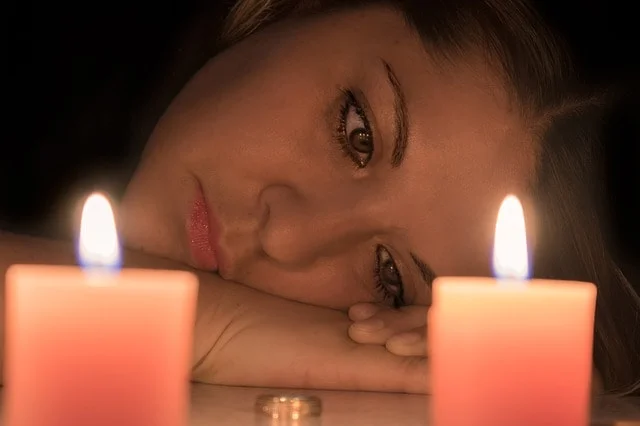Are You Considering Trauma Therapy?
When I talk with new clients, numerous questions come up around trauma. Many are unsure if they have experienced trauma or Post Traumatic Stress Disorder (PTSD). I find that the majority of people believe that trauma has to be the “Big T trauma” type like being exposed to war, combat, terrorism, natural disasters, physical or sexual abuse and catastrophic accidents. Indeed, these experiences can have a profound effect on your life.
However more common events can also be traumatic. This is known as “Small t trauma”. An example might be: Growing up in a turbulent family, being bullied as a child, experiencing emotional or physical abuse or being diagnosed with a chronic health condition. If you unsure if you have experienced trauma, ask yourself some questions:
Are you easily started and tired of being on edge?
Do you feel irritated or hopeless much of the time?
Do you have trouble concentrating and feel like you can’t focus?
Perhaps you feel anxious and have difficulty relaxing.
Have close relationships become strained or just too much work?
Do you feel disconnected from people, even the ones close to you? Although you would like to feel close to people, instead you feel withdrawn and detached, isolated and alone.
Are you unable to find any real pleasure in your life? Are you just numb from it all?
Do you feel exhausted much of the time?
If you answered yes to many of these questions you may have experienced a traumatic event that is still impacting you.
An estimated 70% of adults in the US have experienced a traumatic event in their lives.
Trauma can affect those who are directly exposed to trauma but also those who witness a traumatic event.
Trauma can be 1 traumatic event or can happen repeatedly over a period of time.
Although There are Many Types of Events That Cause Trauma, Here are Some:
Physical, emotional and sexual abuse as a child
Physical, Emotional and sexual abuse as an adult
Assault
Neglect
Abandonment
Bullying- school violence
Public or Social humiliation
Community-based violence
Auto accident
Life threatening illness or medical procedure
Being subjected to an event, in which you feel helpless, the feeling of not being able to stop it or escape from it
Sudden unexpected death/loss of someone close to you
Violence of any type (domestic, family, spousal, crime)
Online bullying or abuse
Disaster
Terrorism
War
Survivors of trauma may have trouble concentrating, remembering, forming relationships and trusting. You may feel as though you have lost control.
Trauma can influence your perception of the world. It is kind of like looking at the world through glasses with colored lens. Everything looks a little different because of trauma. Your thoughts, emotions and behaviors may be influenced by that trauma. The pain you feel is real. Trauma Counseling can heal the pain.
Trauma Treatment Can Help You Feel Like You
Trauma treatment can help you clear your mind of the persistent, haunting thoughts, as well as, the emotional reactions and behaviors that have come from it.
I am located on the west side of Denver in Wheat Ridge. I specialize in helping you heal from trauma, so that you can put it in the past where it belongs and you move on with your life.
Trauma treatment can help by helping you recognize that it is something that happened but it is not the definition of you. It is not who you are.
Trauma is not part of you. It is something that happened. You are not a victim. You have survived the experience. I have great respect for the courage you possess because you got through the hard part all on your own. You survived it! Now what is left to do is the easy part- to clear the mind of pain- to put it to rest, so that you can have your life back to do all the things you want to do.
Trauma may cause feelings of anger, rage, despair and helplessness. It takes an enormous amount of energy to hold those feelings down and function in this world. It cannot be improving what’s going on in the now, at this moment. It can only be depleting energy and awareness. So when that disappears-(preoccupation with guilt, rage and helplessness) when your mind clears, reboots and updates, the difference in your life is phenomenal. You will have all that energy back to do the things you love.
Will I Have to Re-live my Trauma in Therapy to Heal?
Reaching out for help may seem difficult. Maybe you have been to counseling before and it wasn’t helpful. You may be thinking that you don’t want to talk about it or relive it. Why put yourself through that misery again? The good news is that RRT is different. You won’t have to talk about it in detail or relive the experience. In fact, that is exactly what I don’t want you to do. I will lead you through the process. It’s easy, peaceful and calming. Wouldn’t it be nice to have your life back? Things can and will be so much better. You’ll be glad you did.
You have recognized that life can be better than how it has been, and you have taken that brave step to move forward. I want you to know that you will find safety, comfort and support. Together we will move through this and leave it in the past. My clients tell me of the peace and lightness they experience, even after the first session.
Seeking counseling can be especially helpful whether the traumatic experience was recent or long ago.
What Will Trauma Therapy be Like?
Rapid Resolution Therapy (RRT) was originally designed for Trauma, PTSD and sexual abuse.
Recent neuroscience research (Memory Reconsolidation) supports the effectiveness of RRT and why it works.
RRT is healing and is used for many other issues, as well.
First Session (2 to 2.5 hours): As your Certified Rapid Resolution Therapist, I will lead you through the process, all you have to do is be present and follow along.
RRT uses stories, symbolic imagery and metaphors. Did you know the human mind responds well to stories? RRT is gentle and does not require re-living painful experiences. In fact that is exactly what I do NOT want you to do is re-live the experience. Instead, RRT heals the mind by releasing the emotional pain which will no longer play a part in your day to day life. Additionally, RRT is backed by science. Recent neuroscience has shown that the mind can heal itself. RRT follows the steps of Memory Reconsolidation which is effective and lasting.
RRT empowers you so that your passion, humor, wisdom, energy, logic and joyfulness can once again be part of your world. Together we will be able to move through what is troubling you to the place you want to be.
Second Session (~1.5 hours): We will discuss the changes you have noticed since your first session. We will check in to ensure the emotions that once were connected to the event are no longer there. Therefore you are no longer triggered by it. At that time, we will recognize other things that may have come up, now that the original things have been cleared. We will focus on those things and clear them.
IF you require a Third Session, we will focus on the issues that you desire. The number of sessions you require is dependent on the issues you would like to address. Some people are able to accomplish what is needed in one session. Others have experienced an eventful life and have more issues to address. Whether you have one session, two, or three, life improves, pain lessens and you feel considerably lighter. My clients tell me they experience a sense of peace and calm.
How Can Trauma Counseling Help with my Personal Relationships?
It’s difficult to have a relationship when you are constantly alert and hyper-vigilant, irritable and unable to focus on the moment or connect with those you care about. RRT helps you clear your mind so you are no longer disturbed by things that happened in the past. You will be able to relax and be in the present moment, enjoying friendships, romantic relationships, and family relationships. RRT helps you to feel a sense of peace and calm. You’ll have more energy to focus on the people and the things you love.
I’m Not Sure I Should Try RRT...
You may be afraid that RRT will be too painful and difficult. Nothing could be farther from the truth. RRT is gentle and healing. I will be right there with you every step of the way. We move through it together. You will never have to relive those painful memories or the experience. RRT was designed specifically for those who have experienced trauma and re-living it is not part of the process, in fact, that is what I don’t want you to do.
My belief is that people have a remarkable capacity for self-healing and personal growth. It requires courage to take the first step and reach out for help.
I invite you to begin today. Life is short.
Why not be happy?
I invite you to set up a free 20 minute phone consult.
“I had resigned myself to the fact that therapy was going to be a way of life for me. So excited to say that is not the way it is. I am a believer and am happy to share with everyone that RRT/Memory Reconsolidation has made a big difference in my life and has been the best thing that has happened to me. Feeling lighter, happier and free. Badda Bing!”
— DJ
“I highly recommend Cathy Austin as a trauma-informed counselor and therapist. I have worked with Cathy for over 5 years. I have sent my family members to Cathy for Rapid Resolution Therapy and the results have been truly remarkable. Cathy caters to her clients with acceptance and understanding; she has a talent for being able to hear, understand, and affect the client’s desired change.”
— Catherine Warnock, LPC
About the Author
Cathy Austin is a Nationally Certified Counselor and graduate of University of Colorado, Denver. She currently owns a private practice in Wheat Ridge, CO. Cathy is a trauma informed counselor who specializes in PTSD, Trauma, Sexual Trauma, Anxiety Treatment. She is certified in Rapid Resolution Therapy, Trauma Informed Care.













